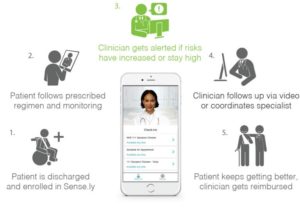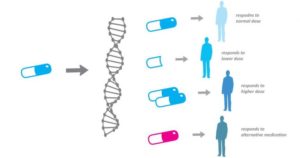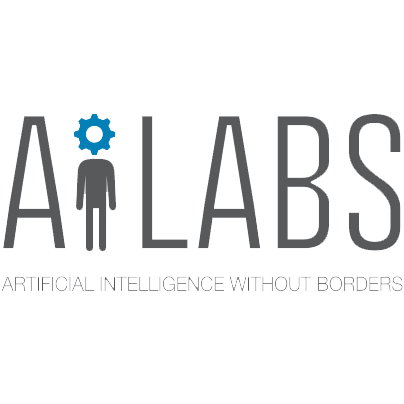Google Deepmind in collaboration with Moorfields Eye Hospital, London is currently diagnosing eye diseases with 94% accuracy.
Scientists from The Institute of Cancer Research, London have devised an AI-powered tool that can detect DNA mutations in cancer and also provide insights on how the cancer may spread.
Google’s AI can detect when a person will die.
These recent advances in the field of healthcare are an infinitesimally small percentage of the actual developments taking place by leveraging Artificial Intelligence. Concepts that were hidden inside super-secret research laboratories and unpublished journals, are finally being implemented and the results are all encouraging. For the better part of the last decade, scientific research is heavily focused on the many domains of Artificial Intelligence, be it Machine Intelligence, Computer Vision, Robotics, Natural Language Processing or the most enigmatic of them all – human computer interaction. While these names suggest the underlying technologies, application areas are vast and it is kind of an oxymoron to say “Only sky is the limit.”
Let us consider the following situations. Terminally ill patients or fatally injured patients have been known to survive even years after they lose all hope. While we continue to thank the heavens for their recovery, the doctors actually make it possible. Monitoring the patients’ vitals meticulously, changing medication as and when required, scheduling surgeries are all herculean tasks. A single mistake at any step can cost a life. That is the reason why practicing doctors undergo mental trauma quite frequently. It is also complex to determine how a patient will react to a certain drug, or respond to a new course of treatment or whether the transplant surgery will give rise to further set of complications. This is where AI comes in. AI models are already trained with millions of patient histories to mine through the course of treatment and how well the patient reacted and of course the outcomes. Scientists including those from Aalto University and University of Eastern Finland have developed a new artificial intelligence (AI) technology that can compare different treatments and identify the most suitable alternative for a particular patient. A team at the University of Toronto, Canada may be able to significantly reduce the time needed to develop radiation therapy treatment plans for people with cancer.

Image Source: Sensely
Of late, a lot of companies have started investing in live chatbots and digital consultancy agents. The trend has caught on in the healthcare sector as well. Digital nursing assistants have already been developed to help with monitoring elderly or physically challenged patients. These App based services are being trusted by parents and children alike who are forced to live in different parts of the world, or by working parents to keep an eye on their diseased child. In addition to domestic monitoring, doctors are also finding these useful to consult with other doctors in different geographical locations and discuss about treatment design. The most amazing part in all of this – the digital assistant is an inevitable part and a properly trained assistant will be able to differentiate between the treatment plans being discussed and identify the most suitable option for the patient using supporting statistics and analyzed evidences.
Drug creation is another area where AI trained algorithms stand a chance. IBM Watson Health is already using Machine Learning and companies like Pfizer are leveraging it to power its search for immune-oncology drugs. A host of other startups like Data2Discovery, Helix, Causaly are investing millions of dollars on deriving insights between heterogeneous datasets to biomarkers, repurpose drugs, and identify disease pathways amenable to combination therapy among other things.
 Image Source: Alpha Genomix
Image Source: Alpha Genomix
In medical research, all are staunch believers of the fact that every patient is unique no matter how much clichéd it sounds. But it is this idea which has led to precision medicine. Precision medicine takes into account your genes, susceptibility to drugs, environment you grew up in, food preferences and so on. It is like a treatment tailored to satisfy a patient’s needs. Doctors and researchers use precision medicine to more accurately predict which treatment strategies will work best for a particular patient. As AI enters the precision medicine picture, it can help organizations capitalize on precision medicine in multiple ways. In terms of data challenges, AI leverages deep learning approaches to overcome the obstacles inherent in large data sets and unstructured data. In clinical settings, AI functions as an assistant that helps clinicians work more efficiently and make more accurate diagnoses, actions that help improve the productivity of healthcare workers. And at a broader level, AI helps companies accelerate drug development to cut costs and achieve faster time to medicine while reducing errors in the system.
With increased medical research and commencement of several highly specialized clinics around the world, healthcare is breaching its prior records every day. While the standards of healthcare is currently at an all-time high, the costs associated are also sky-rocketing. The general mass of third world countries like India, Bangladesh, Israel, a larger part of Africa and Latin America struggle to afford such facilities and thus are completely neglected. While traditional computers have contributed a lot towards capturing data and analyzing it, artificial intelligence, the next big thing, should be making it cheaper. We can only hope these practices will bring us closer to this goal.
References:
https://blog.benchsci.com/startups-using-artificial-intelligence-in-drug-discovery
https://www.nature.com/articles/d41586-018-05267-x
https://www.ibm.com/watson/health/business-need/biased-decision-making/
https://www.forbes.com/sites/victoriaforster/2018/08/01/ai-can-design-radiation-therapy-treatment-plan-for-cancer-in-twenty-minutes/#6ea755d7a8c9
https://www.indiatoday.in/education-today/gk-current-affairs/story/ai-tells-you-which-medical-treatment-is-better-1391840-2018-11-19
https://www.intel.ai/powering-precision-medicine-artificial-intelligence/#gs.24ozuc




Leave a Comment